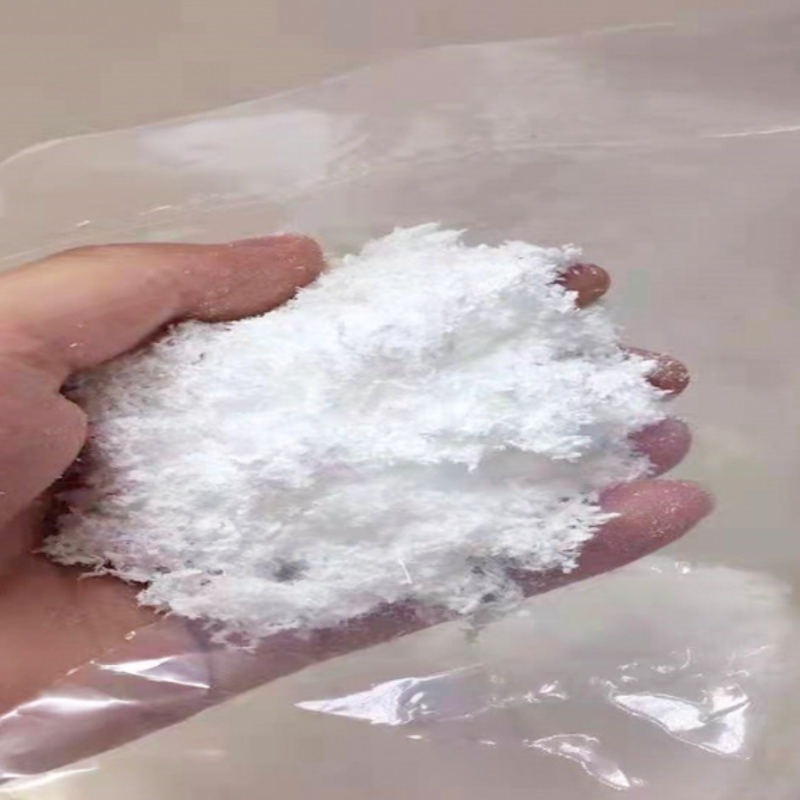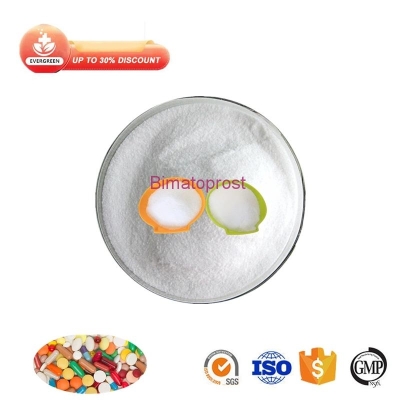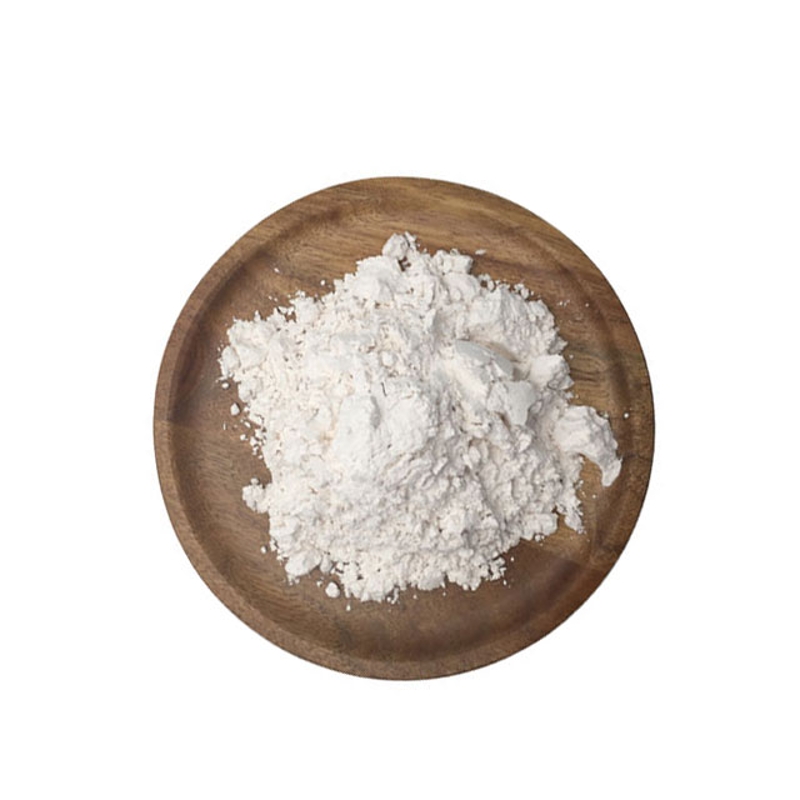-
Categories
-
Pharmaceutical Intermediates
-
Active Pharmaceutical Ingredients
-
Food Additives
- Industrial Coatings
- Agrochemicals
- Dyes and Pigments
- Surfactant
- Flavors and Fragrances
- Chemical Reagents
- Catalyst and Auxiliary
- Natural Products
- Inorganic Chemistry
-
Organic Chemistry
-
Biochemical Engineering
- Analytical Chemistry
- Cosmetic Ingredient
-
Pharmaceutical Intermediates
Promotion
ECHEMI Mall
Wholesale
Weekly Price
Exhibition
News
-
Trade Service
*For medical professionals only to read and refer to the ancient cloud: green is taken from blue, and
green is blue
.
Where exactly is "blue"? The answer is below!
The discovery of insulin ushered in a new era of
diabetes treatment.
In order to better meet the treatment needs of patients, insulin preparations continue to iteratively develop and innovate, from human insulin, animal insulin to insulin analogues, and then from premixed insulin to double insulin analogues, the research and development of new preparations further helps diabetic patients reach blood sugar standards
.
Starting from real cases, look at the hypoglycemic advantages of new insulin preparations The development of degludon double insulin is undoubtedly a milestone in
the history of insulin research and development.
Since the launch of insulin deglu aspart, it has attracted much attention and is widely used in clinical practice
.
Regarding the clinical efficacy of patients after switching from premixed insulin to deglugates, has always been a hot topic of discussion among endocrinologists, based on which the "medical community" specially invited Professor Hu Jing of Guangxi International Zhuang Medical Hospital to share a classic case for us, from the real case to see the hypoglycemic advantages
of degu aspart.
Medical community: I would like to ask you to share the reasons why you chose Deglu aspart in the face of a variety of treatment options (intensive inpatient insulin pump, basic + mealtime insulin injection, adjustment of premixed insulin types, application of deglupartic insulin)? Dr.
Hu Jing: There are a variety of treatment options available for this patient, and considering the patient's willingness and compliance (reluctance to be hospitalized and increasing the number of injections), we first excluded intensive inpatient treatment and basic + mealtime insulin injection regimens
.
We observed that patients measured their blood sugar: fasting and preprandial blood glucose were generally high, postprandial blood glucose was lower than preprandial blood glucose, and even hypoglycemia
.
In this way, it may be possible
to switch the regimen to a low premixed insulin with fewer mealtime components.
However, we consider that in premixed insulin preparations, the interfering and superimposed effects of mealtime and base ingredients may lead to an unsatisfactory, prolonged hypoglycemic effect, known as the "shoulder effect", which is easy to induce postprandial hypoglycemia, and this regimen is also not suitable for this patient
.
Therefore, in order to "take into account fasting and postprandial blood sugar control, good safety, and ease of use", we focus on a new "weapon" - Degu aspart double insulin, which realizes the combination of two insulins, and whether in the preparation or after subcutaneous injection, the two components exist independently to avoid the occurrence of shoulder effect [1-2].
Based on this, after consulting with the patient, we chose insulin deguinectin aspart as an alternative
.
Medical community: What are the benefits of this patient after changing treatment regimens? Dr.
Hu Jing: Degu aspart double insulin is a "rising star" in the insulin circle in recent years, an insulin injection pen, at the same time to meet the patient's mealtime and basal insulin needs, closer to the physiological insulin secretion state, so that during the treatment, the risk of hypoglycemia is correspondingly reduced
。 Moreover, insulin degludec, which accounts for 70% of the content of insulin deglupart, is the "longest basal insulin with the longest half-life at present", making insulin deglupartine relatively stable
at the onset of action.
In this patient, self-measured blood glucose was relatively stable after adjusting the treatment regimen first (Figure 1).
Secondly, we can see that in the process of gradual decline in blood sugar, the number of hypoglycemia in this patient is significantly reduced, especially the nocturnal hypoglycemia does not occur again, which largely meets the patient's needs
for treatment safety.
Fig.
1 Patient's self-measured blood glucose changes
The benefits of patients in this case have actually been confirmed as early as evidence-based studies, such as the NN3598 study suggested that after T2DM patients with poor control of insulin treatment in the past switched to Deglugate-double insulin BID treatment, the patient's blood sugar control was stable and glycated hemoglobin (HbA1c) attainment is higher and the risk of hypoglycemia is lower [3].
It is also based on evidence-based medical evidence that supports our adjustment
of this plan.
Medical community: I would like to ask you to share how the use of insulin in your hospital and the use of deglu aspart have changed
after the collection.
Dr.
Hu Jing: The implementation of the insulin collection policy has greatly benefited patients from the perspective of pharmacoeconomics, and reduced economic costs
while ensuring insulin quality 。 Although insulin degu aspart has not yet entered the centralized procurement catalog, from the clinical application process, we found that when the previous insulin treatment regimen did not meet the sugar control standard, after switching to degu aspart double insulin, its sugar control effect and the risk of hypoglycemia were relatively reduced, which was recognized
by the majority of patients and doctors.
After the implementation of the insulin collection policy, we did not feel much impact
on Degu aspart double insulin in the clinic.
In addition, we also observed that patients who had previously applied other insulins, such as premixed insulin, to switch to deglupart, did not ask to switch back to the original insulin due to economic problems, so it also reflected everyone's recognition
of deglupartic insulin.
From the analysis of evidence-based evidence, look at the advantages of double insulin The evidence-based evidence mentioned by Professor Hu Jing in the above case - The NN3598 study is a 26-week, randomized (2:1 group), open-label, treatment-compliant trial involving 40 centers across the country [3], including 543 adult T2DM patients who have previously received premixed/self-mixed/basal insulin ± metformin stabilization therapy ≥for 8 weeks, Random conversion to deglu aspart bispart± metformin (n=361) or insulin aspart 30 BID ± metformin (n=182) was randomized
in a 2:1 ratio.
After 26 weeks of treatment, HbA1c control was similar in both groups, but the defp control was significantly better in the degu aspart double insulin group compared with the insulin aspart 30 group (-1.
6 mmol/L vs-3 mmol/L, P<0.
0001) (Figure 2).
</b144> double insulin is better
-End-
"This article is only used to provide scientific information to medical and health professionals, and does not represent the position of the platform" Submission/reprint/business cooperation, please contact: pengsanmei@yxj.
org.
cn
green is blue
.
Where exactly is "blue"? The answer is below!
The discovery of insulin ushered in a new era of
diabetes treatment.
In order to better meet the treatment needs of patients, insulin preparations continue to iteratively develop and innovate, from human insulin, animal insulin to insulin analogues, and then from premixed insulin to double insulin analogues, the research and development of new preparations further helps diabetic patients reach blood sugar standards
.
Starting from real cases, look at the hypoglycemic advantages of new insulin preparations The development of degludon double insulin is undoubtedly a milestone in
the history of insulin research and development.
Since the launch of insulin deglu aspart, it has attracted much attention and is widely used in clinical practice
.
Regarding the clinical efficacy of patients after switching from premixed insulin to deglugates, has always been a hot topic of discussion among endocrinologists, based on which the "medical community" specially invited Professor Hu Jing of Guangxi International Zhuang Medical Hospital to share a classic case for us, from the real case to see the hypoglycemic advantages
of degu aspart.
- Case Profile: Patient male, 41 years old
.
Poor blood sugar control for 2 years due to weight loss for 4 years
.
In 2017, the patient was diagnosed with "diabetes" due to fasting blood glucose of 17mmol/L and began lifestyle management
.
In March 2021, the preprandial blood glucose rose to 12~17mmol/L, so the initial insulin aspart 50 12u twice daily (BID) + metformin treatment regimen, due to gastrointestinal symptoms to self-stop metformin, the dose of insulin aspart 50 increased to 16u BID, blood sugar fluctuations, palpitations and discomfort during postprandial exercise, plain self-test fasting blood glucose (FPG).
More than 10mmol/L
.
This time, in order to adjust the plan, combined with laboratory tests, the diagnosis of type 2 diabetes mellitus (T2DM) and dyslipidemia
was diagnosed.
- Diagnosis and treatment: According to the patient's condition, willingness and treatment compliance, without changing the number of injections, adjust the insulin aspart 50 injection to degu aspart double insulin 16u BID (morning and dinner) subcutaneous injection + dapagliflozin 10mg once a day (QD) for hypoglycemic therapy, Atorvastatin calcium 20mg QD lipid
regulator.
- Doctor Interview:
Medical community: I would like to ask you to share the reasons why you chose Deglu aspart in the face of a variety of treatment options (intensive inpatient insulin pump, basic + mealtime insulin injection, adjustment of premixed insulin types, application of deglupartic insulin)? Dr.
Hu Jing: There are a variety of treatment options available for this patient, and considering the patient's willingness and compliance (reluctance to be hospitalized and increasing the number of injections), we first excluded intensive inpatient treatment and basic + mealtime insulin injection regimens
.
We observed that patients measured their blood sugar: fasting and preprandial blood glucose were generally high, postprandial blood glucose was lower than preprandial blood glucose, and even hypoglycemia
.
In this way, it may be possible
to switch the regimen to a low premixed insulin with fewer mealtime components.
However, we consider that in premixed insulin preparations, the interfering and superimposed effects of mealtime and base ingredients may lead to an unsatisfactory, prolonged hypoglycemic effect, known as the "shoulder effect", which is easy to induce postprandial hypoglycemia, and this regimen is also not suitable for this patient
.
Therefore, in order to "take into account fasting and postprandial blood sugar control, good safety, and ease of use", we focus on a new "weapon" - Degu aspart double insulin, which realizes the combination of two insulins, and whether in the preparation or after subcutaneous injection, the two components exist independently to avoid the occurrence of shoulder effect [1-2].
Based on this, after consulting with the patient, we chose insulin deguinectin aspart as an alternative
.
Medical community: What are the benefits of this patient after changing treatment regimens? Dr.
Hu Jing: Degu aspart double insulin is a "rising star" in the insulin circle in recent years, an insulin injection pen, at the same time to meet the patient's mealtime and basal insulin needs, closer to the physiological insulin secretion state, so that during the treatment, the risk of hypoglycemia is correspondingly reduced
。 Moreover, insulin degludec, which accounts for 70% of the content of insulin deglupart, is the "longest basal insulin with the longest half-life at present", making insulin deglupartine relatively stable
at the onset of action.
In this patient, self-measured blood glucose was relatively stable after adjusting the treatment regimen first (Figure 1).
Secondly, we can see that in the process of gradual decline in blood sugar, the number of hypoglycemia in this patient is significantly reduced, especially the nocturnal hypoglycemia does not occur again, which largely meets the patient's needs
for treatment safety.
Fig.
1 Patient's self-measured blood glucose changes
The benefits of patients in this case have actually been confirmed as early as evidence-based studies, such as the NN3598 study suggested that after T2DM patients with poor control of insulin treatment in the past switched to Deglugate-double insulin BID treatment, the patient's blood sugar control was stable and glycated hemoglobin (HbA1c) attainment is higher and the risk of hypoglycemia is lower [3].
It is also based on evidence-based medical evidence that supports our adjustment
of this plan.
Medical community: I would like to ask you to share how the use of insulin in your hospital and the use of deglu aspart have changed
after the collection.
Dr.
Hu Jing: The implementation of the insulin collection policy has greatly benefited patients from the perspective of pharmacoeconomics, and reduced economic costs
while ensuring insulin quality 。 Although insulin degu aspart has not yet entered the centralized procurement catalog, from the clinical application process, we found that when the previous insulin treatment regimen did not meet the sugar control standard, after switching to degu aspart double insulin, its sugar control effect and the risk of hypoglycemia were relatively reduced, which was recognized
by the majority of patients and doctors.
After the implementation of the insulin collection policy, we did not feel much impact
on Degu aspart double insulin in the clinic.
In addition, we also observed that patients who had previously applied other insulins, such as premixed insulin, to switch to deglupart, did not ask to switch back to the original insulin due to economic problems, so it also reflected everyone's recognition
of deglupartic insulin.
From the analysis of evidence-based evidence, look at the advantages of double insulin The evidence-based evidence mentioned by Professor Hu Jing in the above case - The NN3598 study is a 26-week, randomized (2:1 group), open-label, treatment-compliant trial involving 40 centers across the country [3], including 543 adult T2DM patients who have previously received premixed/self-mixed/basal insulin ± metformin stabilization therapy ≥for 8 weeks, Random conversion to deglu aspart bispart± metformin (n=361) or insulin aspart 30 BID ± metformin (n=182) was randomized
in a 2:1 ratio.
After 26 weeks of treatment, HbA1c control was similar in both groups, but the defp control was significantly better in the degu aspart double insulin group compared with the insulin aspart 30 group (-1.
6 mmol/L vs-3 mmol/L, P<0.
0001) (Figure 2).
</b144> double insulin is better
Hu Jing
Deputy chief physician and supervisor of master's students
- Deputy Director of the Department of Endocrinology and Metabolism, Guangxi International Zhuang Medical Hospital
- Vice Chairman and Secretary of the Diabetes Prevention and Control Professional Committee of Guangxi Preventive Medicine Association
- Member of the Endocrinology and Metabolism Branch of Guangxi Medical Association
- Member of Endocrinology Branch of Guangxi Medical Association
- Member of the Endocrinology and Diabetes Section of the Bethune Psychiatric Research Association
- Member of the Brain and Heart Co-treatment Professional Committee of Guangxi Society of Integrative Medicine
- Guangxi health science popularization expert
References:
[1] Singh AK,et al.
Expert Rev Endocrinol Metab.
2015 Jan; 10(1):65-74.
[2] Heise T,et al.
Diabetes Obes Metab.
2015 Jul; 17(7):659-64.
[3] Yang W,et al.
Diabetes Obes Metab.
2019; 21(7):1652-1660.
[4] Diabetes Branch of Chinese Medical Association.
Chinese Journal of Diabetes.
2021; 13(4):315-409.
[5] Ji Linong.
Wait.
Chinese Journal of Diabetes.
2017; 9(2):79-105.
[6] Degu aspart double insulin instruction manual (2020 edition).
-End-
"This article is only used to provide scientific information to medical and health professionals, and does not represent the position of the platform" Submission/reprint/business cooperation, please contact: pengsanmei@yxj.
org.
cn







